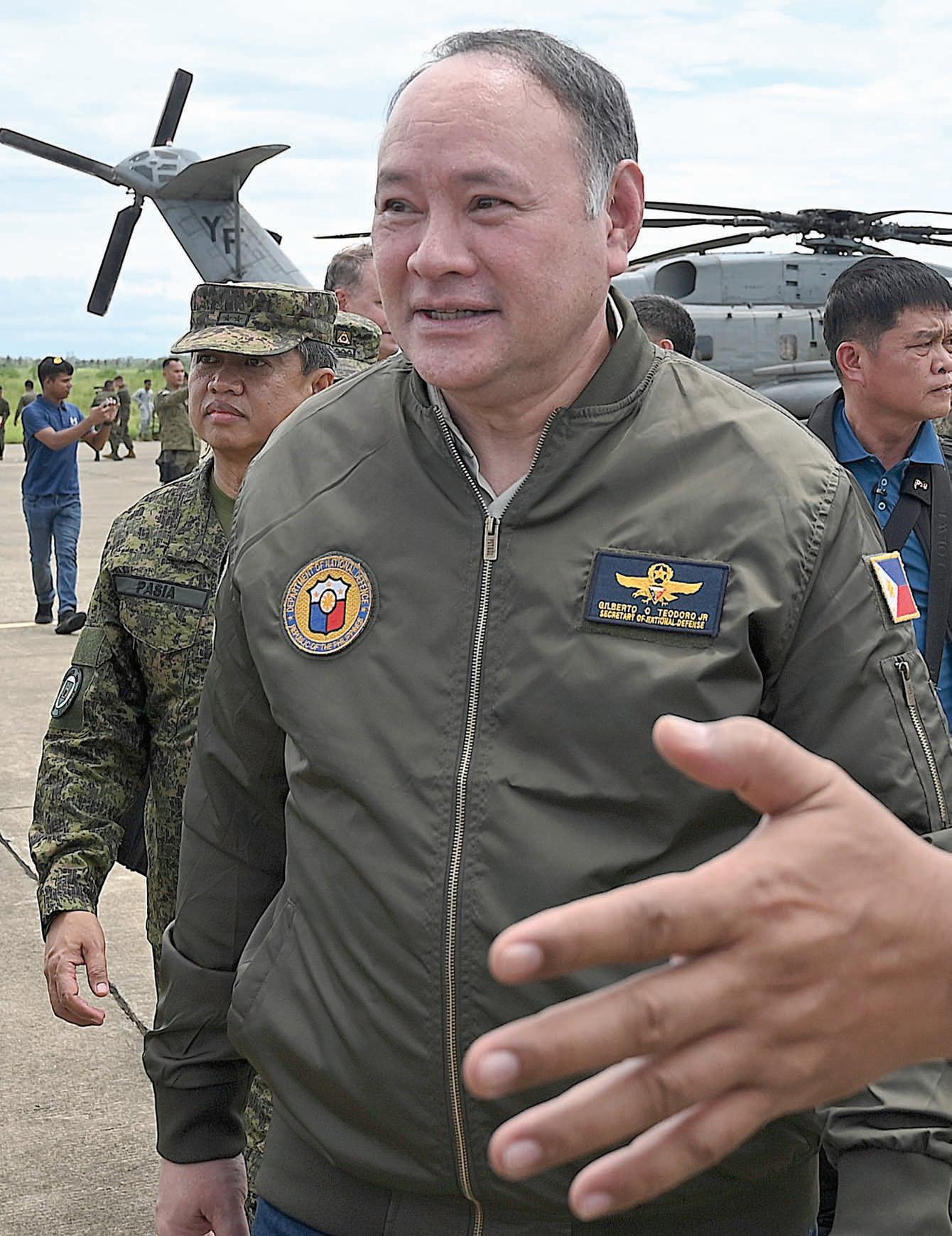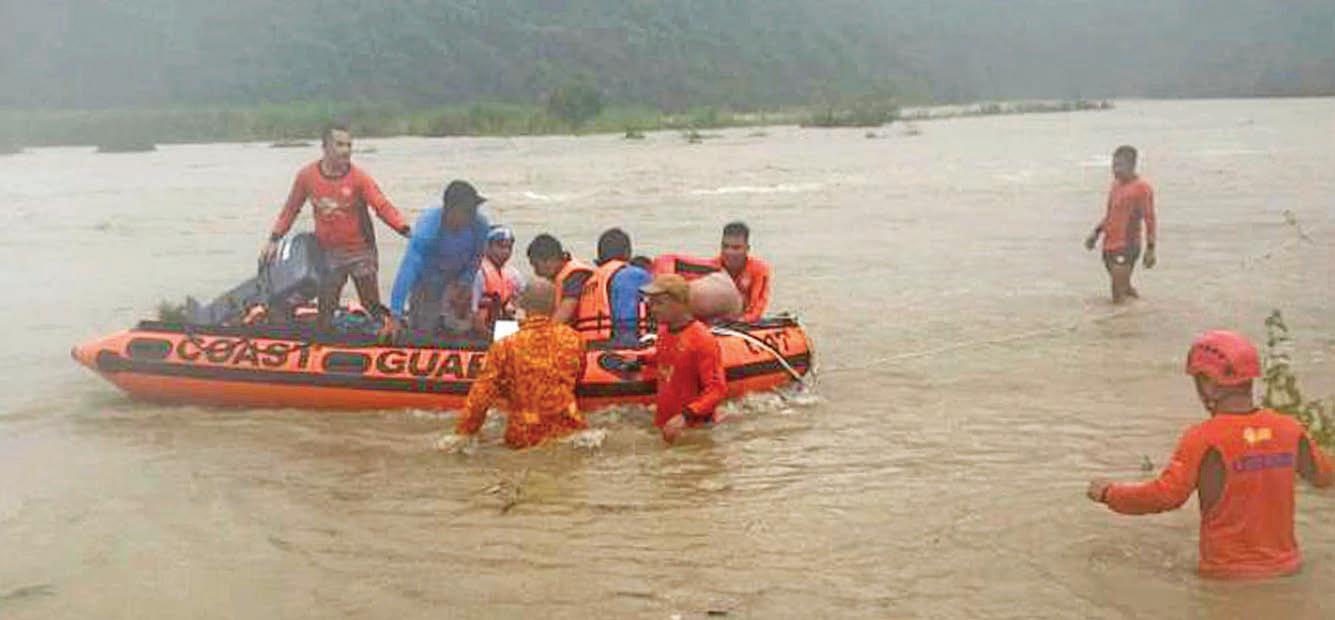
2 minute read
PLAN, PREPARE, PREVAIL
‘Gibo’ seeks to redefine OCD’s role in disaster response and readiness
By Rex Anthony Naval
Now, on our part what we want to be is the ‘bridge’ between concerted national government assistance and efforts in all these aspects and the local government units. That is what the OCD is all about,” he said during the postState-of-the-Nation Address briefing on July 26.
Doing this role merely means increasing the OCD’s capacity of marshaling and coordinating all efforts related to disaster response, Teodoro said.
A nd as of this time, the defense chief said the OCD is now “increasing its coordinative functions” to allow it to get real-time data and information needed for making critical and timely decisions in times of disasters in case LGUs are overwhelmed.
“So, what the OCD is doing is to [increase] its coordinative functions to get as reliable and timely information and analyze this in as much a real-time situation or scenario as possible for concerted efforts of the national government, in case a local government unit cannot cope with a natural or a man-made disaster,” the defense chief emphasized.
In line with this, Teodoro said the country is continuing to galvanize its partnerships with international humanitarian organizations and response agencies to beef up its response capabilities.
“ That being the case, too, we continue also to partner with international humanitarian agencies and response agencies to advocate with the rest of the national government in best practices in disaster risk reduction,” he added.
However, Teodoro also maintained that the DND and the Armed Forces of the Philippines (AFP) are getting the lion’s share in terms of helping fellow Filipinos in times of disasters and calamities.
That being said, in the DND proper, the AFP too are tasked— big share—of helping our people in times of crisis and in terms of delivering basic goods and services when communities are isolated as we see now,” he stressed.
Preparedness, resiliency
AS this developed, Teodoro said that major gains have been made by DND partner agencies when it comes to disaster preparedness and resiliency.
These partner agencies include the Department of the Interior and Local Government (DILG), the Department of Science and Technology (DOST), the Philippine Institute of Volcanology and Seismology (Phivolcs) and the Philippine Atmospheric, Geophysical and Astronomical Services Administration (Pagasa), the Department of Public Works and Highways (DPWH), and Department of Environment and Natural Resources (DENR).

“ Well, great strides have been made by our partner agencies with the primary responsibility for preparedness and resiliency, namely, of course the DILG because the first responders are the local government units,” he added.
“In case of predictive capabilities for natural calamities, a lot has been done by the DOST through Phivolcs and Pagasa,” Teodoro said.
Meanwhile, the DPWH and the DENR are doing everything possible in terms of ensuring disaster mitigation and resilience, he added.
Teodoro also lauded Department of Social Welfare and Development (DSWD) Secretary Rex Gatchalian for being one of the driving factors in improving the country’s disaster response and rehabilitation.

To add to that, the coordination between the DSWD, of course, anchored on the much-improved predictive capabilities of Pagasa and Phivolcs, has allowed us to adequately plan beforehand and marshal our resources more efficiently in order to serve our people in a faster manner. And it is a testament to the close coordination between Cabinet members that we are able to function this efficiently,” he emphasized.
Continued on A2





